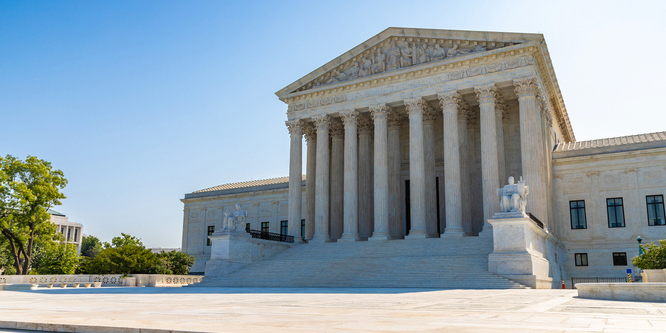
Image Source: iStock | bloodua
The U.S. Supreme Court yesterday in a six to three decision struck down decades of legal precedent in ruling that colleges and universities may no longer use race as a consideration for student admissions.
The decision, which specifically applies to academic institutions, is expected to reverberate beyond academia and into the corporate world’s diversity, equity and inclusion (DEI) initiatives. Businesses are covered under separate legislation by the U.S. Equal Employment Opportunity Commission (EEOC), which enforces federal labor laws making it illegal to discriminate based on a person’s race, color, religion, sex, national origin, age, disability or genetic information.
A Bloomberg article last week predicting the outcome of the cases before the nation’s highest court said that striking down affirmative action would wield a “concussive, though not fatal, blow” to corporate DEI programs.
The Washington Post reports that complaints have been lodged against Hershey, McDonald’s, Nordstrom and others by a conservative group led by a former advisor to Donald Trump claiming that corporate diversity initiatives are discriminatory.
Will Hild, executive director of the right-wing Consumers’ Research, told the Post that ending affirmative action will lead to “a free-for-all on pushing back against” corporate DEI initiatives.
A USA Today article posits that concerns about being targeted by right-wing groups are leading companies to review their own practices to determine if changes need to be made internally. Some, for example, are considering doing away with public targets around diversity to try to avoid becoming a target for groups with a political agenda.
Others are questioning whether they should remove diversity titles in the corporate suite even as their goals and programs remain unchanged. Even right-wing corporate darlings like Chick-fil-A have come under attack for diversity efforts, Axios reports. Calls were made to boycott the chain when a political activist discovered that Chick-fil-A had “just hired” a VP of diversity, equity and inclusion. The job and person in question were in place since 2021 with no uproar prior.
Many companies intend to stick with their DEI initiatives.
“We don’t waver,” Lori Castillo Martinez, chief equality officer at Salesforce, told USA Today. “Equality is our value and that is something we will continue to focus on, especially in these challenging times.”

Deja una respuesta
Lo siento, debes estar conectado para publicar un comentario.